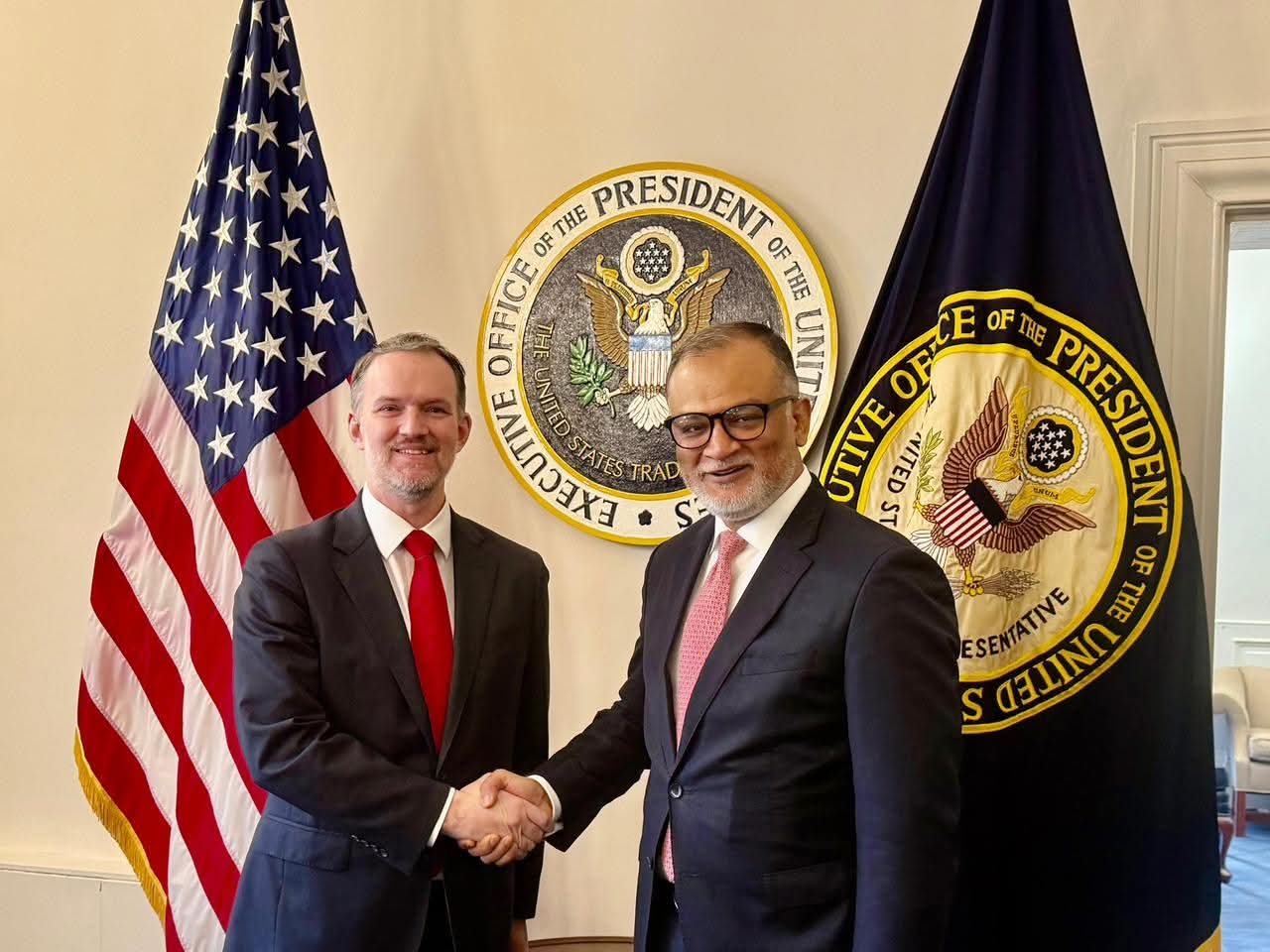Commerce Adviser Sheikh Bashir Uddin met United States Trade Representative (USTR) Ambassador Jamieson Greer at his Washington DC office on Thursday morning, as the two countries continue high-level negotiations to resolve tariff-related issues affecting bilateral trade.
The meeting began at 11:00am local time (9:00pm Bangladesh time) and centred on mutual interests, with a particular focus on expanding trade cooperation and addressing recent tariff concerns.
The encounter came amid the ongoing second round of three-day bilateral tariff talks that resumed on Wednesday. Thursday marked the second day of negotiations, which are taking place at a time when Bangladesh’s key export sector — particularly readymade garments — faces new pressure following the US administration’s recent imposition of a 35% tariff.
According to officials, the discussions were extensive, covering a wide range of subjects including market access, labour standards, agricultural trade, environmental commitments, digital trade, intellectual property, and investment policies.
Commerce Adviser Sheikh Bashir is leading the Bangladeshi delegation in Washington. National Security Adviser Dr Khalilur Rahman and ICT and Telecommunications Special Assistant to the Chief Adviser, Faiz Ahmed Tayeb, participated virtually from Dhaka. Senior officials from the Commerce Ministry are also in the delegation.
On the US side, officials from USTR, the Department of Agriculture, the Treasury, the Department of Labor, the Environment and Natural Resources Division, and other federal agencies took part in the sessions.
Both sides expressed their commitment to working together to resolve outstanding trade issues and deepen economic ties.
Talks are scheduled to continue on Friday.
Bilateral trade between Bangladesh and the United States has grown steadily in recent years, with garments, textiles, and leather goods forming the bulk of Bangladeshi exports. However, tensions rose after President Donald Trump’s administration imposed steep tariffs on Bangladeshi goods as part of a broader strategy to protect US domestic industries and curb trade deficits. Dhaka has since been lobbying for tariff relief and restoration of preferential trade access under the Generalized System of Preferences (GSP), which was suspended in 2013.
The outcome of the ongoing talks may determine whether Bangladeshi exporters will regain their competitive edge in the US market or face prolonged disadvantage under the new tariff regime.


